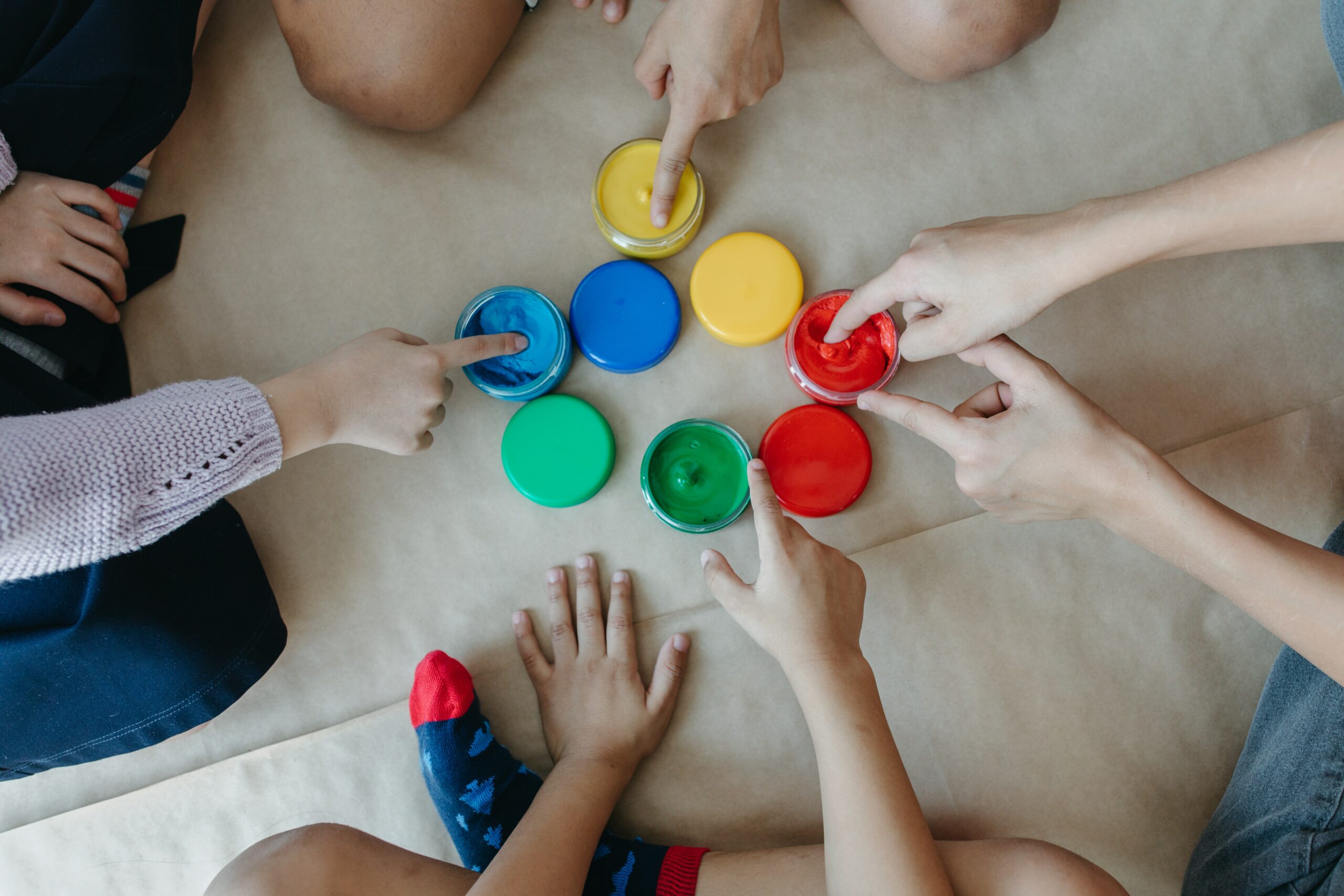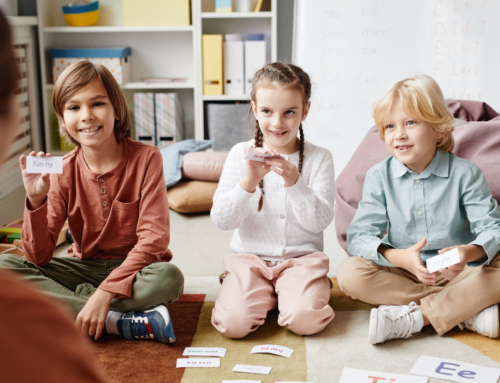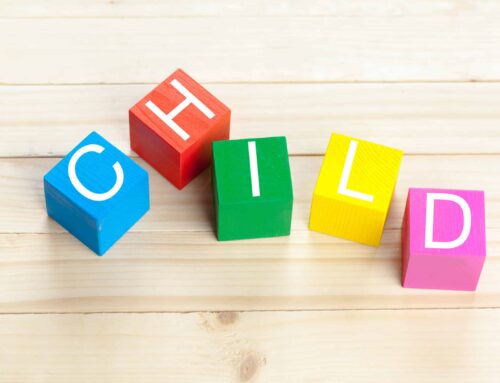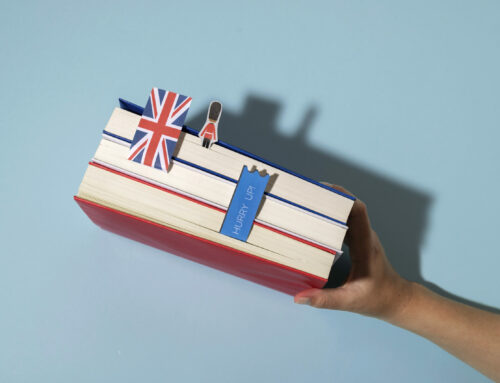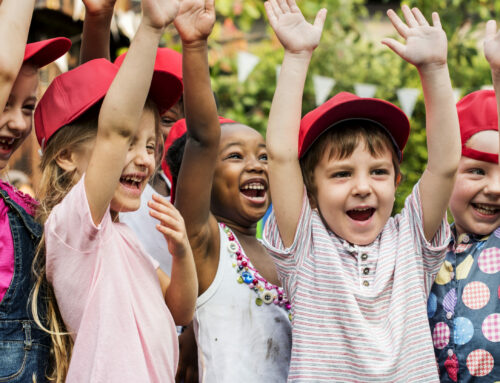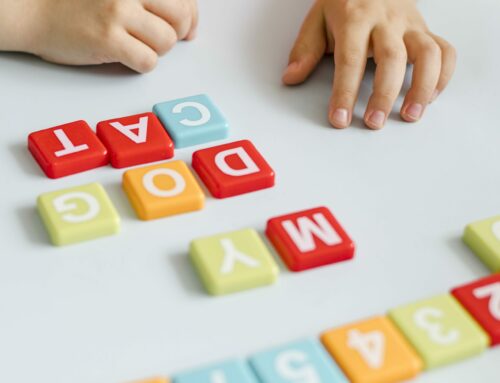Montessori education entices more and more parents, along with their children, especially during the first few years of learning. Everywhere in France, and Paris most of all, Montessori schools, daycare centers, and micro-nurseries are flourishing. At The Garden Academy, we have decided to make use of those methods as early on as our preschool program, with children as young as 2 years old, because we believe that they work well when it comes to learning English and they coincide with our values of openness, autonomy, well-being, and respect for the rhythm of each child.
But in concrete terms, what exactly is a Montessori daycare, and what are its benefits for young children?
A pedagogy based on the psychological development of children
Montessori has become a label that we hear everywhere, often wrongly used. Montessori, named after Maria Montessori, a doctor and pedagogue who dedicated her life to children, is a key concept defining education not as a transmission of knowledge, but as accompanying the natural development of the child. The entirety of Maria Montessori’s method is based on acknowledging and respecting the laws governing the child’s psychological development. This pedagogical approach called “open” recognizes the importance of education and instruction before the age of 6.
Inside a Montessori school, the children will learn auto motivation and will progressively improve their autonomy. Year after year, throughout his entire education, they will gain self-confidence and develop better relationships with others, serenely. The method used in French Montessori schools supports the development of their creativity, and spirit of discovery, and will encourage them to become real explorers! In a Montessori school, children are also taught to find new ways to do things on their own, all the while moving at their own pace.
While this method has proven to be successful in France, throughout kindergarten and primary school, many daycare centers and micro-nurseries have begun appearing to answer the increasingly pressing demands of parents looking to register their children in an educational path that differs from the classic school system, as early on as possible.
A prepared and well-suited environment
Maria Montessori’s pedagogy consists in guiding the child in the use of appropriate tools. Thus, the educators prepare the children’s environment, its atmosphere, and its tools, to adapt it to their characteristics and needs related to their age. Aware of the “absorbing spirit” of children under 3 years old, as Maria Montessori called it, the educators take a back seat to let the child develop their potential autonomously while remaining attentive to any difficulties or blockages that might require their intervention.
According to the Montessori method, the ideal environment for a child must be orderly and allow them to find their bearings and evolve without constraints. Montessori spaces are therefore carefully designed by the staff – without bright colors that over-stimulate the eyes of babies – with appropriate equipment and designed at child height. The small furniture, the toys that are easy to catch, the mattresses on the floor to rest on, and the space in which the child evolves, all of which are completely secure, must offer them the greatest freedom to promote their well-being and their development. In an environment that is both reassuring and structuring, organized by a team of teachers trained in Montessori methods, the children will feel able to explore a new universe within their reach.
Children’s development through experimentation
These structured and airy spaces are conducive to motor skills, experimentation, and exploration. The children can move around freely without the constant intervention of an educator. They learn by themselves, experience life, and observe new phenomena. Their motor, sensory and intellectual development is thus natural and set at their own pace. In Montessori daycare centers, there are no age sections. At the time of registration, your children will be integrated into the first group according to their age. Then, they will evolve at their own pace and according to their stage of development, they will discover an environment that is precisely designed to accompany them in their learning, in an atmosphere that is favorable to their well-being.
Activities adapted to the children’s rhythm
As each child is free to progress at their own pace, the section or class in which children are taught in the daycare center will be determined according to their stage of development. So, how does Montessori education work in the 0 – 3 years cycle?
Children from 3 months to walking age are welcomed in a space designed as a cocoon for 10 to 12 children. The daycare centers and micro-nurseries set up a physical care area with changing tables, changing rooms, and lockers to store clothes; a meal area with tables and chairs that are called weaning tables (child-sized); a rest area with mattresses on the floor rather than cots; and an area for awakening activities around the five senses. Then, depending on the child’s development, hand-eye coordination workshops are offered, and all children can learn or improve their balance and locomotion skills.
When they are ready, the children join another group until the age of 3. There they refine their eye-hand coordination, work on language, learn about art, and practice practical life skills: they prepare for their future schooling – in France or elsewhere – and build themselves as human beings.
English at the heart of Montessori education
In the Montessori pedagogy, which advocates openness and exploration, the English language is at the heart of learning. Becoming bilingual is a project that is perfectly in line with Maria Montessori’s methods of developing sharpness of mind and social ease.
The Garden Academy welcomes children in pre-school, from 2 years old, in its three bilingual establishments in Paris (15, 7, and 5th arrondissement). Much more than a nursery school, a micro-nursery, or a daycare center, The Garden Academy prepares your children for kindergarten with its pre-school program in a 100% English-speaking Montessori environment.
We offer your children yoga classes, mindfulness meditation sessions, gardening workshops, hands-on living experiences, and academic and artistic activities. Each week, each day at The Garden Academy provides your children with a natural introduction to an international culture and prepares them for kindergarten. The pre-school program nurtures and develops your child’s independence through positive experiences in small groups; an “active” learning method advocated by Maria Montessori and supervised by native English-speaking teaching staff. Our themes and learning objectives change every 1-2 weeks.
The Garden Academy welcomes children as young as 2 years old, Monday through Friday from 8:30 am to 4:00 pm or 6:30 pm for full days, and from 8:30 am to 11:30 am for half days. During school vacations, our classes are open every other week. Our fees include meals and organic diapers. We serve a morning snack, lunch at noon, and an after-school snack.
To receive information on registration and fees, click here!
